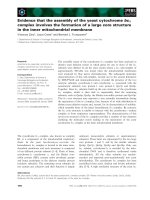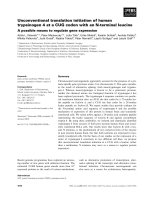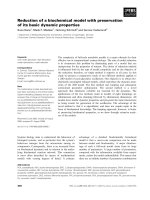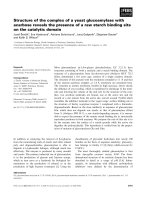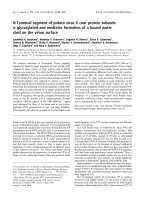Formation of a complex sentence with an adjective clause
Bạn đang xem bản rút gọn của tài liệu. Xem và tải ngay bản đầy đủ của tài liệu tại đây (11.34 KB, 1 trang )
Formation of a complex sentence with an adjective clause
A complex sentence has at least one main clause and one or more subordinate clauses. The subordinate clause
may be a noun clause, an adjective clause (relative clause) or an adverb clause.
Study the following sentences.
The boy was caught. He had stolen the bicycle.
These two sentences can be combined into a complex sentence by using the relative pronoun who.
The boy who had stolen the bicycle was caught.
The man arrived on Monday. His name is Michael.
The man whose name is Michael arrived on Monday.
This is a fine opportunity. It should not be lost.
This is a fine opportunity which should not be lost.
This is an old fort. It was built during the 14th century.
This is an old fort which was built during the 14th century.
Exercise
Combine the pairs of sentences given below using the relative adverbs when, where and why.
1. This is the house. The murder was committed here.
2. My grandfather died. At that time I was only six.
3. You refused to come. Can you tell me the reason?
Answers
1. This is the house where the murder was committed.
2. At the time when my grandfather died I was only six.
3. Can you tell me the reason why you refused to come?
Stay on top of your writing! Download our grammar guide from www.englishgrammar.org to stay up-to-date.
Powered by TCPDF (www.tcpdf.org)


